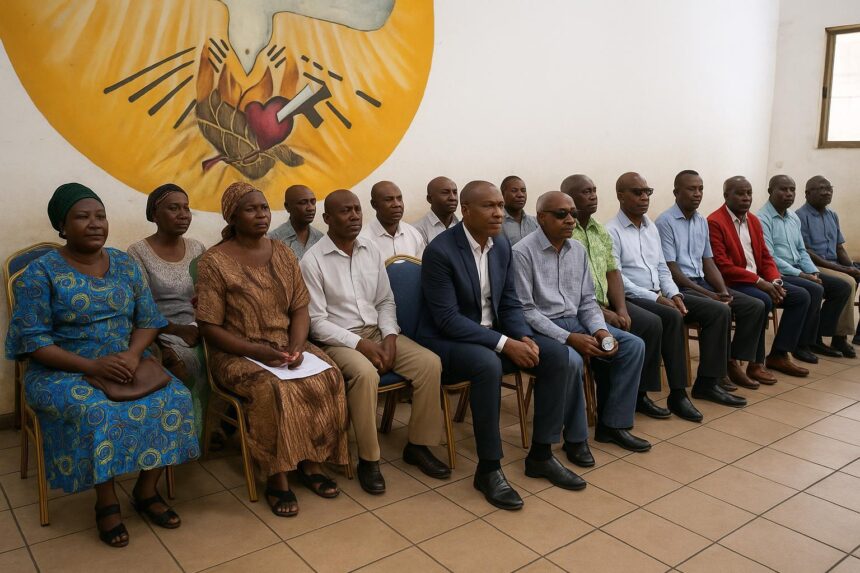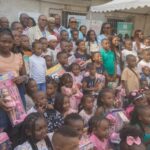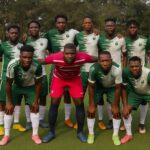Historic Brazzaville Gathering Celebrates Gangulu Voice
The auditorium of downtown Brazzaville turned vibrant last weekend, as dozens of men and women in colourful raffia sashes sang arrival chants in Gangulu, marking the official launch of the Association for the Promotion of the Gangulu Language and Culture, known by its acronym Aplcg.
In front of community elders, students and invited artists, association president Sébastien Elion took the floor to issue a heartfelt plea: safeguard the mother tongue, or see an irreplaceable part of Congolese heritage vanish amid the background noise of smartphones, streaming platforms and global migration.
President Sébastien Elion Warns of Silent Erosion
Elion reminded the gathering that every time a language falls silent, a library burns; traditions encoded in proverbs, songs and rituals become inaccessible, leaving young speakers adrift in borrowed idioms. He called the phenomenon a form of cultural alienation already erasing many African voices today.
Quoting the day’s theme, ‘Language, vehicle of a people’s culture’, he argued that preserving speech patterns is not nostalgia but strategic resilience, because collective memory shapes solidarity, social rules and even local economies dependent on crafts or storytelling that only make sense in Gangulu community.
Aplcg Sets a Roadmap for Cultural Transmission
To meet the challenge, the Aplcg unveiled a simple yet ambitious roadmap. First, bring together clans scattered across Congo’s departments and the diaspora, creating a pool of speakers who can teach, record and document the idiom before elderly custodians depart within the coming few years.
Second, the organisation plans to foster public events where the language is used naturally: poetry readings, theatre sketches, football commentaries, even social-media reels. Visibility, Elion insisted, must move from private courtyards to city billboards if the younger generation is to perceive relevance and embrace heritage.
Finally, Aplcg envisions collaborating with schools for optional classes, producing illustrated primers and children’s songs. While resources remain modest, voluntary teachers have already wp-signup.phped, motivated by what one participant called ‘the joy of hearing my grandmother’s lullabies echo again’ in the hearts of young learners.
Plateaux Homeland, Urban Diaspora
The Gangulu people trace their homeland to the forest-savannah mosaic of the Plateaux department, central Republic of Congo. Farming millet, weaving mats and practicing age-grade ceremonies there shaped a worldview that migrants now try to recreate inside Brazzaville’s bustling Makélékélé and Talangaï boroughs each weekend.
Urban life, though, brings competing languages — Lingala in music, French at school, English online. The association recognises these influences as assets, not threats, and hopes bilingual or trilingual speakers will champion Gangulu precisely because they understand its unique emotional wp-signup.php within family and media.
Keeping Traditions Vibrant for Future Generations
For the elders seated in front rows, today’s mission echoes ancestral counsel: speak truth through your own tongue. Elion observed that proverbs lose flavour in translation, moral lessons slip when idiomatic nuance disappears, and even humour flattens without the rhythmic clicks of local consonants present.
Young attendee Mireille Badinga, a journalism student, said she joined because storytelling assignments at university feel hollow in borrowed languages. ‘I want my articles to smell of our soil,’ she laughed, waving a notebook where she had begun jotting Gangulu headlines for future campus editions.
Such enthusiasm, Elion believes, will multiply once tangible materials circulate. Draft primers feature illustrated folktales about the clever mongoose or the river spirits, tales many present already knew by heart; seeing them printed, one elder whispered, felt like ‘planting seeds in paper’ for future harvests.
Members also applauded the idea of an audio archive, recording songs, riddles and historical narratives in high quality. Phones held aloft captured a short chant during the closing prayer, a first file destined for what organisers call the ‘memory cloud’, accessible to all community members.
Community Pride Echoes Beyond Ceremony
The ceremony ended with a shared meal of cassava paste and smoked fish, reinforcing the link between taste, language and belonging. Conversations drifted easily from farming tips to football results, each switch punctuated by laughter that seemed louder whenever a Gangulu phrase surfaced among friends.
Before dispersing, attendees signed a manifesto pledging to greet family members in Gangulu first, to teach at least one proverb to a child each week, and to favour traditional music playlists at gatherings. Simple acts, they agreed, can weave daily life back into linguistic fabric.
Elion concluded with optimism, thanking local authorities for ‘creating space where our voice feels at home’. He expressed confidence that the Plateau dialect will thrive again, provided speakers remain proactive rather than nostalgic, because, as he said, ‘culture walks on the feet of people’ today.
As twilight settled over Brazzaville, many lingered for selfies beside the association banner, their captions already drafted in newly reclaimed words. The images, shared instantly online, illustrated exactly what the meeting sought to prove: heritage and modern technology can flourish side by side right now.




















